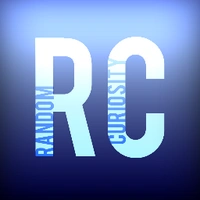Finding Trustworthy Anime Criticism
With thousands of anime series released each year, finding reliable critical perspectives has become essential for viewers navigating this vast landscape. Quality reviews offer more than simple recommendations—they provide context, analysis, and thoughtful evaluation that enhance appreciation and understanding of the medium.
However, not all anime review sites maintain the same standards of critical assessment. The best review platforms combine several important qualities:
- Critical expertise demonstrating deep understanding of animation, storytelling, and cultural context
- Editorial independence free from publisher or industry influence
- Consistent evaluation frameworks applied across different types of content
- Transparency about biases and personal preferences
- Diverse perspectives representing different viewpoints and experiences
- Constructive criticism that explains both strengths and weaknesses
This guide examines the six most reliable anime review sources in 2025, evaluating them based on critical quality, consistency, diversity of perspectives, and specific strengths in different types of coverage. Whether you’re looking for episodic analysis, comprehensive series reviews, or ratings-based recommendations, these platforms offer thoughtful criticism to inform your viewing choices.
1. Anime News Network Reviews
Anime News Network Reviews stands as the most established professional review platform, with a team of experienced critics providing consistent, nuanced coverage across multiple formats.
Review Approach:
- Professional critic team with journalism backgrounds and subject expertise
- Structured evaluation system with letter grades and consistent criteria
- Multiple reviewer perspectives for major releases
- Comprehensive coverage including streaming series, films, and home video
- Regular publication schedule with weekly episode reviews
- Editorial oversight maintaining consistent quality standards
Content Focus:
ANN’s review section delivers professional-quality criticism comparable to established film and television publications. Their approach balances artistic assessment, entertainment value, and cultural context within a consistent framework. Reviews typically examine technical elements (animation quality, sound design), narrative structure, character development, and thematic depth.
Their episodic coverage stands out for its “Preview Guide” system, where multiple critics provide independent first impressions of each new seasonal anime, followed by consistent week-to-week coverage of continuing series. This multi-reviewer approach offers valuable perspective diversity often missing from single-critic sites.
The platform’s independence from industry financial ties allows for genuinely critical assessments without promotional considerations. Their reviews frequently acknowledge both a show’s artistic merits and its entertainment value, recognizing these can sometimes diverge.
Best For: Readers seeking professional-quality criticism with consistent standards and multiple critical perspectives.
2. MyAnimeList Reviews
MyAnimeList Reviews offers the largest collection of user-generated reviews anywhere, providing democratic critical perspectives with helpful sorting tools to identify the most valuable opinions.
Review Approach:
- Community-driven system with thousands of user reviews
- Helpfulness voting to surface the most valuable perspectives
- Numerical rating framework (1-10 scale) for easy comparison
- Personalized recommendations based on rating patterns
- Integrated watching data connecting reviews with popularity metrics
- User profile context showing reviewer history and preferences
Content Focus:
MAL’s review section represents the largest collection of anime criticism online, with a democratic approach that allows any user to contribute reviews. The quality naturally varies, but the platform’s helpfulness voting system effectively surfaces the most thoughtful, well-written critiques for each series.
The integration with MAL’s database creates unique contextual advantages, with reviews displayed alongside popularity statistics, user scores, and staff information. This connection also powers their recommendation engine, which suggests new anime based on correlation patterns between user ratings.
The platform’s massive review library ensures coverage of virtually every anime ever released, including obscure titles rarely discussed elsewhere. For popular series, the variety of perspectives allows readers to see different interpretations and evaluations, often revealing how shows resonate differently with various audience segments.
Best For: Accessing diverse user perspectives with helpful sorting tools and rating-based recommendations.
3. Reddit Anime Communities
Reddit Anime Communities provide uniquely democratic and discussion-oriented criticism through dedicated subreddits for both general anime discourse and specific series discussions.
Review Approach:
- Community discussion format emphasizing conversation over declaration
- Voting system highlighting consensus and valuable perspectives
- Episode discussion threads for real-time reactions and analysis
- Spoiler management allowing both newcomer and veteran viewpoints
- Varied critical frameworks from entertainment focus to technical analysis
- Seasonal retrospectives evaluating shows after completion
Content Focus:
Reddit’s anime communities offer a distinctive approach to criticism through structured discussion rather than formal reviews. The primary subreddit (r/anime with over 5 million members) hosts official episode discussion threads for seasonal shows, creating archives of viewer reactions and analysis as series progress. These threads capture the community experience of watching shows week-by-week, documenting evolving theories, emotional reactions, and critical assessments.
The platform excels at balancing immediate reactions with thoughtful analysis, as voting systems tend to reward both entertaining commentary and insightful criticism. For currently airing shows, the episode threads provide valuable context about how the community initially received specific developments, while retrospective discussions offer more complete evaluations after series conclusion.
Beyond the main subreddit, dedicated communities for specific series (like r/OnePiece or r/ShamanKing) offer even more specialized discussion, often including detailed analysis from longtime fans with deep knowledge of the source material and adaptation choices.
Best For: Interactive community discussions with diverse viewpoints and episode-by-episode reaction archives.
4. Anime Feminist
Anime Feminist provides uniquely focused criticism examining series through analytical frameworks that consider gender, sexuality, representation, and social themes often overlooked in conventional reviews.
Review Approach:
- Intersectional feminist analysis examining representation and social dynamics
- Diverse critic perspectives with emphasis on varied lived experiences
- Contextual criticism considering cultural and industry factors
- Content consideration guides identifying potentially sensitive material
- Thematic depth prioritizing meaningful narrative analysis
- Industry criticism examining problematic production practices
Content Focus:
Anime Feminist offers specialized criticism that examines how series handle gender, sexuality, disability, race, and other aspects of identity and representation. Their reviews assess both problematic elements and positive examples, providing nuanced discussion rather than simple condemnation or praise.
Their “Premiere Reviews” provide seasonal first impressions from multiple critics, each contributing their unique perspective. This approach highlights how differently viewers with varied backgrounds may experience the same content, revealing aspects that traditional single-reviewer systems might miss.
Beyond individual series reviews, the site examines industry trends, creator perspectives, and cultural contexts that shape content decisions. This broader analytical approach helps readers understand why certain tropes persist and how industry structures influence representation in anime.
Best For: Thoughtful analysis of representation issues and social themes with diverse critical perspectives.
5. RandomC
RandomC stands as the most established episodic review site, delivering consistent week-by-week analysis of seasonal anime with a focus on narrative development and viewer experience.
Review Approach:
- Comprehensive episodic coverage with weekly reviews
- Long-form analysis examining narrative progression
- Screenshot-rich format documenting visual storytelling
- Consistent reviewer assignments throughout series runs
- Predictive analysis considering future narrative developments
- Community discussion integration with active comment sections
Content Focus:
RandomC specializes in detailed episodic coverage, with consistent weekly reviews that track narrative development throughout a season. Their approach emphasizes the viewing experience, analyzing how each episode functions both as an individual unit and as part of the larger story.
The site maintains impressive coverage breadth, reviewing 15-25 series each season with consistent writer assignments ensuring continuity of perspective throughout a show’s run. Each review examines plot developments, character evolution, visual storytelling, and emotional impact, creating a valuable record of how series unfold week by week.
Their distinctive screenshot-heavy format documents key visual moments, making reviews useful references for viewers catching up on series or revisiting favorite moments. This visual documentation also highlights animation quality, directorial choices, and visual storytelling elements that purely text-based reviews might overlook.
Best For: Week-by-week episodic analysis with consistent coverage throughout full seasons.
6. Anime-Planet Reviews
Anime-Planet Reviews combines community critiques with an exceptionally detailed tagging system, creating a recommendation engine that connects viewers with series matching their specific preferences.
Review Approach:
- Tag-based evaluation with detailed content classification
- Community review aggregation with helpful voting
- Personalized recommendation algorithm based on tag preferences
- Comparative analysis connecting thematically similar shows
- Specific content advisories identifying potentially sensitive elements
- Custom list integration connecting reviews with user collections
Content Focus:
Anime-Planet’s review system stands out through its integration with the platform’s sophisticated tagging database. Each review connects to a detailed content classification system that identifies specific themes, tropes, character types, and story elements, creating precise recommendation possibilities beyond simple genre matching.
Their community reviews include helpful voting that surfaces the most valuable perspectives, while their standardized review template ensures consistent coverage of key evaluation points. This structure helps readers quickly identify strengths and weaknesses across important categories like story, animation, sound, and characters.
The platform’s recommendation engine leverages both review ratings and tag preferences to suggest content aligned with specific interests. This approach proves particularly valuable for finding thematically similar shows or series containing specific elements, rather than just generally popular recommendations.
Best For: Detailed content-based recommendations and reviews with specific thematic analysis.
Different Review Approaches
Anime criticism encompasses several distinct approaches, each offering different benefits to readers:
Episodic Reviews
Week-by-week coverage tracking narrative development throughout a season. These reviews examine how stories unfold, how character arcs develop, and how viewer experience evolves over time.
Best examples: RandomC, Reddit episode threads, ANN’s episode reviews
Community Discussion
Interactive conversation-based criticism where multiple viewpoints contribute to a more complete understanding through dialogue rather than individual declarations.
Best examples: Reddit Anime Communities, MAL comment sections
Comprehensive Series Reviews
Holistic evaluation of complete series examining overall narrative structure, thematic coherence, and artistic achievement. These reviews consider the complete work rather than individual components.
Best examples: MyAnimeList, Anime-Planet, ANN series reviews
Technical Analysis
Focused examination of animation quality, sound design, visual direction, and production elements. These reviews assess artistic and technical achievement independent of storytelling.
Best example: ANN, RandomC’s visual documentation
Thematic Criticism
Analysis of underlying messages, cultural context, and social implications. These reviews examine what series say rather than just how they say it.
Best example: Anime Feminist, thoughtful Reddit discussion threads
Recommendation-Focused Reviews
Practical guidance about who would enjoy series based on specific preferences. These reviews prioritize matching content to viewer interests over abstract quality assessments.
Best example: Anime-Planet, MAL’s recommendation engine
How to Get the Most from Anime Reviews
Find Critics Who Share Your Taste
The most valuable reviews come from critics whose preferences align with yours. Pay attention to reviewers who appreciate the same elements you enjoy, even if their overall ratings don’t always match your opinions.
Look Beyond Numerical Scores
The most useful information in reviews typically appears in the analysis rather than the final score. A thoughtful 7/10 review explaining why specific elements work (or don’t) provides more value than a perfect score with little substantive discussion.
Seek Multiple Perspectives
Different viewers notice different aspects of the same series. Reading several reviews provides a more complete picture than relying on a single critic’s assessment, especially for complex or divisive shows.
Consider The Intended Audience
Good criticism evaluates shows against appropriate expectations. A lighthearted comedy succeeding at its goals might rightfully receive a positive review even when a flawed drama with “deeper” ambitions earns criticism. The best reviewers clarify their evaluation framework.
Engage With Community Discussion
Platforms like Reddit offer the opportunity to not just read reviews but participate in critical conversations. Engaging with different viewpoints can deepen your own understanding and appreciation of series.
Use Reviews As Conversation Starters
Rather than treating reviews as definitive judgments, view them as starting points for your own critical thinking. The most valuable criticism prompts you to notice elements you might otherwise miss and reconsider your own reactions.
Conclusion
The anime criticism landscape offers varied approaches from professional publications to community platforms to specialized analytical sites. The best reviews go beyond simple recommendations to provide context, analysis, and thoughtful evaluation that enhance appreciation and understanding of the medium.
For most viewers, the ideal approach involves consulting multiple complementary sources—perhaps combining the professional standards of Anime News Network, the community perspectives of Reddit and MyAnimeList, and the specialized analysis of Anime Feminist or RandomC. This multi-source strategy provides both breadth and depth of critical insight.
As anime continues its global expansion, quality criticism becomes increasingly valuable for helping viewers navigate the growing volume of content, understand artistic achievements and limitations, and discover series that align with their specific interests and preferences.
📝 Dissecting Anime Reviews
Why do reviewer and user scores sometimes differ dramatically for the same anime?
The gap between critic and audience scores typically occurs for several reasons:
Different evaluation criteria - Professional critics often assess technical execution, narrative innovation, and artistic achievement, while general audiences may prioritize entertainment value and emotional connection.
Expectation management - Critics typically watch more anime and may be less impressed by familiar tropes that still feel fresh and engaging to casual viewers.
Target audience alignment - Shows perfectly executed for a specific audience may receive recognition from critics for achieving their goals, even when those goals don’t appeal to broader viewership.
Critical frameworks - Reviewers apply specific analytical lenses (feminist criticism, formal analysis, etc.) that may value different elements than general audience metrics.
Selection bias - User ratings often come primarily from fans who sought out the show, while critics review assigned series regardless of personal interest.
Neither perspective is inherently more “correct”—they simply reflect different priorities and viewing contexts.
How should I interpret numerical anime rating systems?
Different platforms use numerical scales in distinct ways:
MyAnimeList (1-10):
- The community effectively uses a 5-10 range
- 7-8 typically means “good”
- Below 6 generally indicates significant problems
- Scores aggregate thousands of ratings, smoothing outliers
Anime News Network (A-F):
- Uses full grade range with clear criteria
- C means “average,” not “bad”
- Grades evaluate both technical merit and entertainment value
- Individual critic perspectives rather than averages
Reddit Upvotes/Downvotes:
- Measures community consensus rather than objective quality
- Indicates popularity and agreement rather than critical assessment
- Creates visibility for majority opinions, sometimes obscuring minority perspectives
- Better at measuring immediate reactions than thoughtful analysis
The most meaningful approach is understanding each platform’s typical patterns and following reviewers whose scoring aligns with your experience over time.
How do seasonal anime reviews differ from retrospective reviews?
The timing of reviews creates substantial differences in perspective:
Seasonal (Contemporaneous) Reviews:
- Evaluate episodes as they air without knowledge of future developments
- Capture immediate reactions and community conversation
- May focus heavily on predictions and mysteries
- Often more engaged with weekly emotional responses
- Valuable for understanding how series were initially received
Retrospective Reviews:
- Assess complete works with full context
- Can evaluate narrative payoffs and thematic completeness
- Consider cultural impact and influence over time
- Often more focused on legacy and historical significance
- Better at identifying which elements hold up beyond initial hype
Both approaches offer valid but different insights. Seasonal reviews document the experience of watching as part of the community, while retrospective reviews provide more complete artistic evaluation.
What makes community-based reviews different from professional criticism?
Community platforms like Reddit and MyAnimeList offer distinct advantages and limitations compared to professional criticism:
Strengths of Community Reviews:
- Diverse perspectives from viewers with varied backgrounds and interests
- Immediate reactions capturing authentic emotional responses
- Specialized knowledge from dedicated fans of specific genres or franchises
- Evolving conversation that develops over time rather than static judgments
- Democratic consensus showing what resonates with general audiences
Limitations of Community Reviews:
- Echo chamber effects where popular opinions can drown out minority perspectives
- Inconsistent analytical frameworks without editorial standards
- Variable expertise in animation techniques and production context
- Recency bias favoring newer content over classics
- Emotional investment sometimes limiting objective assessment
The ideal approach combines the democratic diversity of community perspectives with the structured analysis of professional criticism.
How can I find anime reviews that match my specific content preferences?
Several approaches can help locate reviews aligned with your interests:
Tag-based systems - Platforms like Anime-Planet allow filtering reviews by specific content elements and themes.
Subreddit communities - Specialized Reddit communities exist for almost every anime genre and major series.
Critic specialization - Identify reviewers who specialize in genres you enjoy by checking their review history.
Review aggregators - Sites like MyAnimeList let you find reviewers with similar taste profiles to yours.
Community recommendations - Use forum discussions to identify reviewers respected by fans who share your preferences.
Recommendation algorithms - Use platforms that suggest shows based on your rating patterns rather than general popularity.
The most effective approach involves finding a few trusted voices whose taste consistently aligns with yours, then using their recommendations as starting points while still forming your own opinions.






